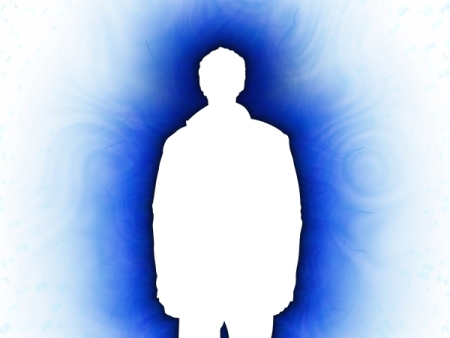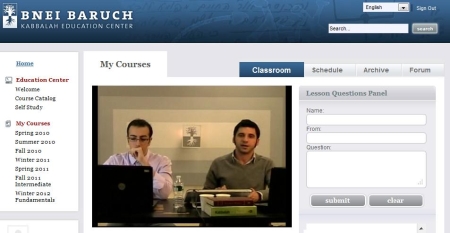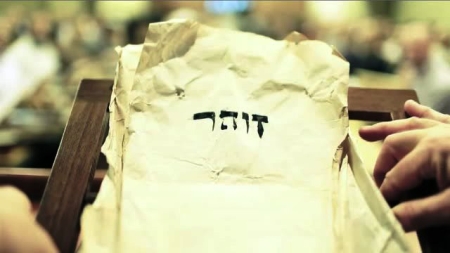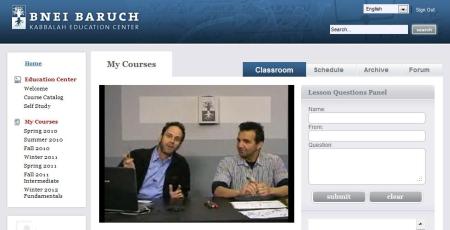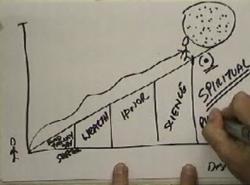As BBEC instructors explained what Kabbalah is, who it’s for, what its goal is, and why so many people are discovering it today, through relating to dozens of questions sent by participants, the classes evolved into discussing:
…and much more.
Below is just a small sample of the questions asked, many of which were answered, many of which couldn’t be answered due to lack of time, but which everyone in the course can ask and get answered in the student forum if it’s missed in the classes.
We look forward to seeing you in the second lesson this coming Sunday, January 8, on The Wisdom of The Zohar, Kabbalah’s principle text.
Marisha from Denmark:
How can you say that giving a person begging for money is not really giving? Please explain.
Scott from England:
What do I do with egoistic desires?
Tiago from Brazil:
What does Kabbalah say about human evolution? Are we products of nature’s evolution or are we really divine beings that have forgotten their divine state and have to relearn that state again while being in contact with this material world?
Nicholas from England:
Who or what is ‘the Creator’?
Dorothy from Wirral, UK:
Is the goal of Kabbalah to become one with the Creator?
Wagner from Brazil:
I know this is not just charity. What is this “bestowal” according to Kabbalah?
Claudia from Long Beach, California:
Does “pleasure” in Kabbalah mean all of our life pursuits, except for divine love?
Scott from England:
So if I give food to a homeless person, without looking for a thank you in exchange, would that be bestowal?
Alexis from Argentina:
Is Kabbalah mainly about true love?
Eline from The Netherlands:
Is there any way to get rid of egoism? Let’s say, if I bestow, isn’t my primary goal to feel good myself?
Mafalda from Lisbon, Portugal:
Should we consider an accident as having been predetermined?
Game Seam from Montreal, Canada:
Can Maslow’s hierarchy of needs help us attain the upper reality?
Medina from Sweden:
How did the writers of the Kabbalah books you use come to “find” these laws, and furthermore, how do they work?
Simas from Lithuania:
Why is this law good to some people, and bad to others, if everyone wants to be happy?
Game Seam from Montreal, Canada:
But what reality do we need to know exactly? There are so many things to know in life and I’m afraid to not be able to know the whole reality before I die.
Dev from Jamaica:
You speak about suffering. Most suffering is caused by fear. How do I get rid of fear?
Steve from Detroit:
So would it be feasible to say that the Creator even fulfills our negative desires & sufferings, that we may come to have a strong desire for Him?
Dan W. from California:
Can an individual reach the end on his/her own or is the end something we reach together?
Leighton from Missouri, U.S.A:
So is Kabbalah mainly about acquiring consciousness?
Nadine from Colorado Springs:
Does the root, the cause affect us individually or the world as a whole?
Ron from Canada:
Has anyone reached the end?
Michael from NY:
Are we saying that pain suffered by an individual or society is predetermined to bring them closer to the path of understanding and thus “true” happiness?
Larry from Thessaloniki, Greece:
I haven’t understood yet what’s the difference between the Kabbalah we study here and the Kabbalah that’s known as a religious belief with red strings protecting you etc. …?
AlphaHelix from New York City:
What of the situation where the premise with respect to the will to procure something is not based on personal desire but on the will to accomplish or procure a thing in order that it might function as a tool to further a societal/communal goal?
Medina from Sweden:
But if I feel negatively about this and Kabbalah says everything’s predetermined, does that mean that I am not supposed to be enlightened?
Ivan from Moscow:
Can Kabbalah be combined with other studies?
Maria from Mexico living in France:
What does Kabbalah or you feel about using drugs to get nearer to the Creator?
Scott from England:
Do I need to reject anything given to me from the Creator? Are they not gifts?
Leighton from Missouri, USA:
If we start the study of Kabbalah late will there be another life to continue with it?
Alexander from Sweden:
Why do some people get more things from the Creator than others?
Vicki from Australia:
So what hope do we have? Are we just playing out a role?
John from Yardley, Pa. USA:
Is dissatisfaction is the first step toward spirituality and relationship with the Creator?
Elyahu from US:
If your desire is to give to others so that they succeed then the pleasure is not cancelled. Do you agree?
Kara from Australia:
How do I know if I study Kabbalah and attain its knowledge, that I won’t still feel empty?
Siavash from Iran:
What kind of causes makes roots too effect in reality?
Simas from Lithuania:
Why do I need to know about the upper roots? What does it give me? And how can Kabbalah change my life?
Ephraim Sean from Toronto, Canada:
Why does the Creator create some people with mental disability? Is that also predetermined?
Maria from Mexico living in France:
What situation or feeling led you to study Kabbalah and really can you understand the “meaning of life” when you are so young? Have you suffered a lot? I am here because I can not stand this negative world any more. I have searched for years.
Alka from USA:
How old is Kabbalah? Has it been updated to be current today?
CM from Canada:
Is pollution and genocide in this world caused by roots in the upper worlds?
Eline from The Netherlands:
Could you elaborate on the root; is the energy outside our limited reality the same energy as we have here, or is it a different energy?
Filip from Amsterdam:
What does ‘above reason’ mean?
Aura from Washington State:
What has Kabbalah got to do with our purpose?
Guido from The Netherlands:
Can we influence the upper root as well? Or is it “only there” to be studied?
Michael from Naples:
Does “the root” pertain to God?
Lorne from Canada:
This implies that we do not have free will, as everything is predetermined. Is this correct?
Dave from Portland, Oregon:
I feel increasingly alienated by American society today. Iis this a normal evolution? Will I become more tolerant as my spiritual understanding grows?
